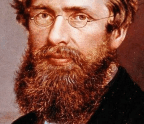Inside the Viking MIND

“I have gone with bloody blade where the ravens followed, and with screaming spear; Vikings fought fiercely. Raging we gave battle, fire ran through men’s houses, I let bloody bodies sleep in town gateways.”
Thus we see the celebrated 10th-century Icelandic warrior-poet Egill Skalla-Grímsson attempting to impress a woman at a feast (as related in his eponymous saga, here in Christine Fell’s translation). There are ample reasons why the Viking Age (c750–1050 AD) earned the terrible but somehow stirring reputation that has engaged the public and academic imagination for centuries. But the truth is more complex.
Throughout the later 20th century, Viking scholars opened up the world of the early medieval Scandinavians beyond the violence. Academics embraced trade and travel, migration and colonisation, along with the sophistication of Viking art, poetry and material culture. (In fact, it could be argued that this almost went too far, until the Vikings’ aggressive side all but disappeared from our histories). New archaeological discoveries have broadened the picture further still.
Over the past 20 years, yet another dimension of Vikings’ lives has come into focus: the mind. As the five following examples demonstrate, the Viking psyche can be explored in many directions – encompassing their beliefs on the creation of the universe, their concept of the body and soul, how they defined gender, and their relationships with magic and religion. Even warfare, the key component of the Viking stereotype, had special qualities
You’re reading a preview, subscribe to read more.
Start your free 30 days



